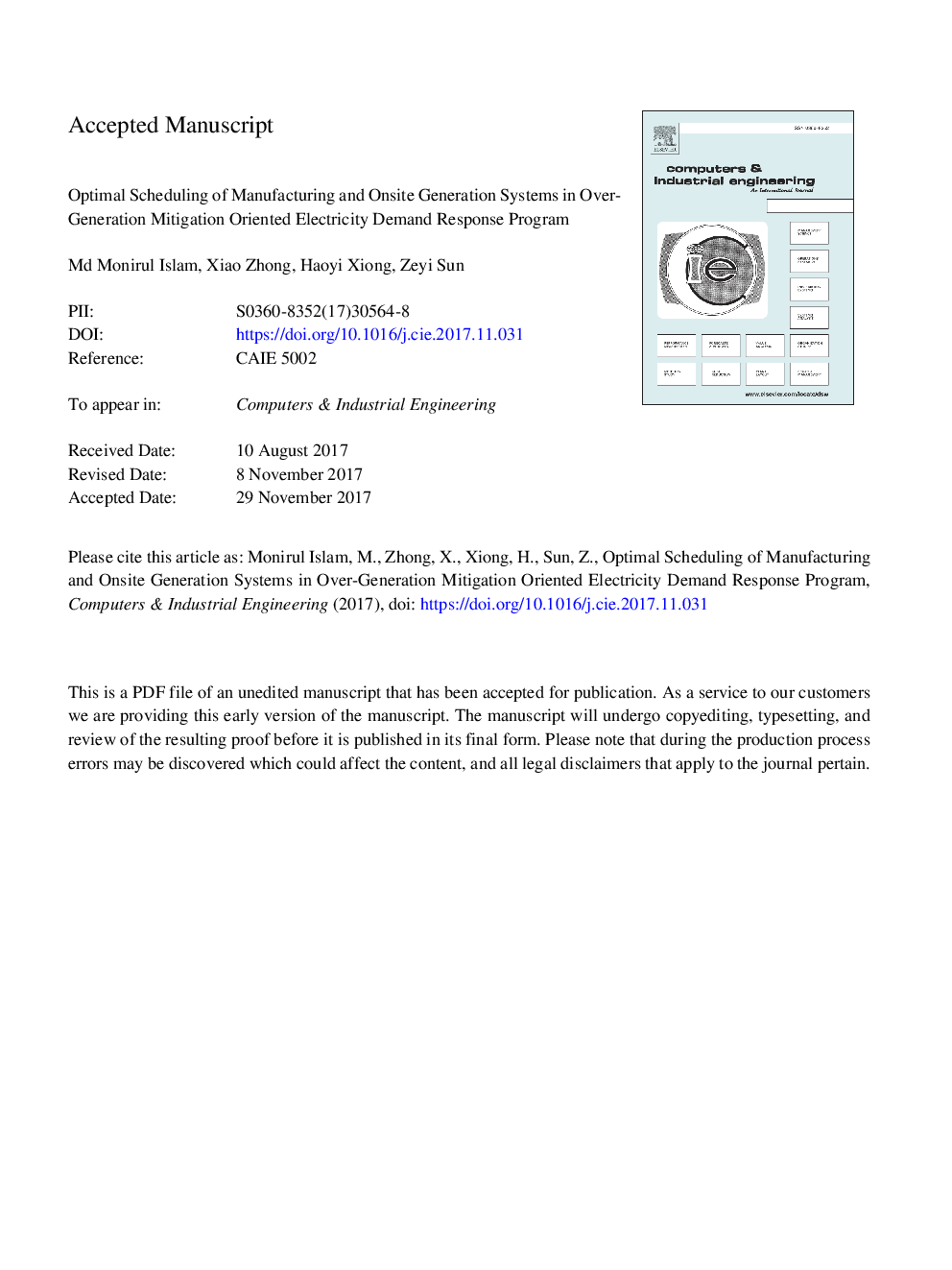ترجمه فارسی عنوان مقاله
برنامه ریزی مطلوب تولید و سیستم های نسل در تولید برنامه تقاضای برق تقاضای کاهش تقاضا
عنوان انگلیسی
Optimal scheduling of manufacturing and onsite generation systems in over-generation mitigation oriented electricity demand response program
| کد مقاله | سال انتشار | تعداد صفحات مقاله انگلیسی |
|---|---|---|
| 86886 | 2018 | 28 صفحه PDF |
منبع

Publisher : Elsevier - Science Direct (الزویر - ساینس دایرکت)
Journal : Computers & Industrial Engineering, Volume 115, January 2018, Pages 381-388
ترجمه کلمات کلیدی
برنامه ریزی مطلوب، سیستم تولید، پاسخ تقاضای کاهش تقاضای بیش از حد تولید، تجزیه و تحلیل میزان حساسیت، بهینه سازی ذرات ذرات،
کلمات کلیدی انگلیسی
Optimal scheduling; Manufacturing system; Over-generation mitigation oriented demand response; Sensitivity analysis; Particle swarm optimization;

